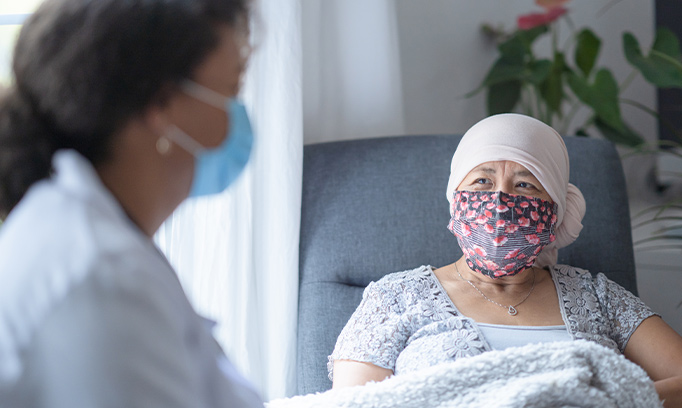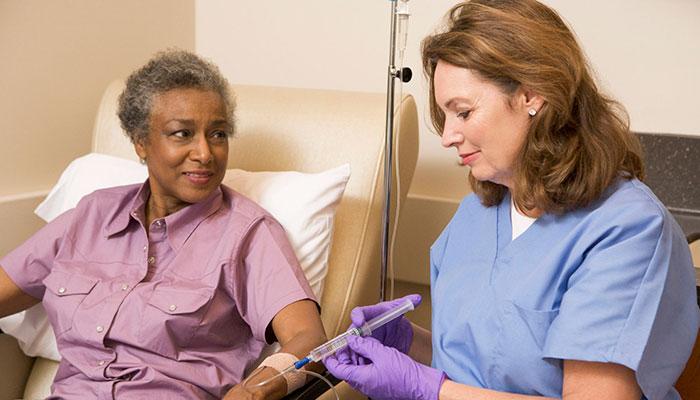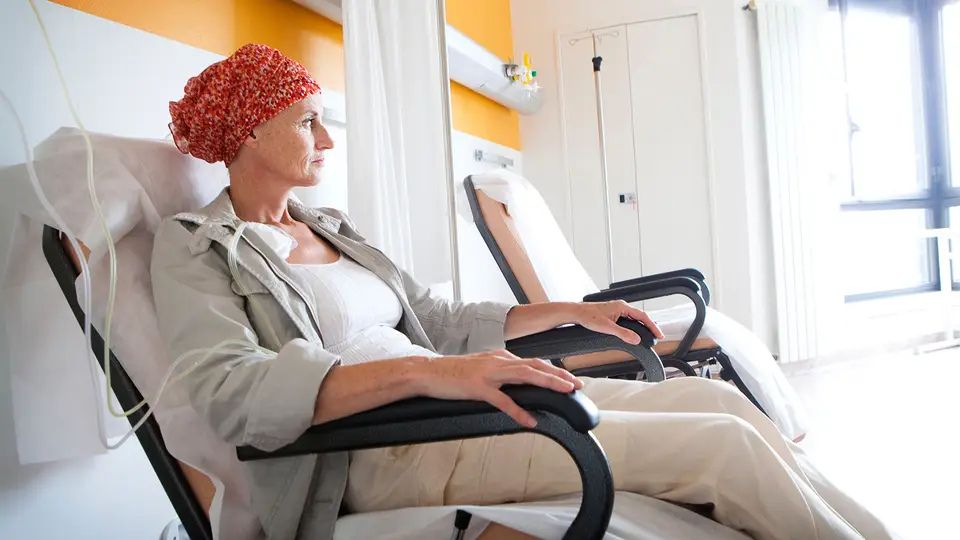Are you having chemotherapy regularly to fight cancer? A strong human you are! But can you drink alcohol while in chemo?
Well, generally, it is recommended not to drink alcohol while in chemo. The reason is that it interacts with the chemo drugs, thus hindering its mode of action. Similarly, it is known to reduce the effectiveness of the whole chemo process as well as worsen the adverse effects associated with chemotherapy.
Want to know how alcohol affects your chemo-recovery process? Then without any further ado, let’s unleash the interesting relationship between the two components.
Table of Contents
ToggleCan You Drink Alcohol While In Chemo?
The true answer is that it depends on the severity of treatment and the type of chemo drugs you are taking.
Both chemotherapy drugs and alcohol get metabolized in the liver. So, both pose a workload on the liver, thus developing a high chance of liver disease like hepatitis, etc.
How Do Chemo Drugs Interact With Alcohol?

Another sound problem is that alcohol is known to interact with the drugs used in the chemotherapy process. These include Ultram, Matulane, etc. Alcohol interacts with the drugs and not only hinders their action but can result in negative results, too, thus making control over cancerous cells difficult.
A few of the known Chemo Drugs with who Alcohol interacts are:
Matulane
If you drink alcohol while treating cancer, there is an increased risk of developing central nervous system problems like headaches, loss of balance, dizziness, etc.
Anxiolytics
Anxiolytics are usually given in chemo treatment to treat psychological distress. Taking these drugs in combination with alcohol can lead to severe complications such as irregular heartbeats, slowed breathing, extreme dizziness, and more. Hence, it is strongly advised against taking these drugs and alcohol together.
Lomustine (Gleostine)
Lomustine is yet another chemotherapy drug given to cancerous patients. It interacts with the DNA of cancer cells, causing them to not replicate further. However, if you sip booze too when taking lomustine, it results in problems like
It is primarily used to treat metastatic cancer.
Ultram
Ultram is a Chemo drug used to relieve pain in cancer. However, the results are quite the opposite if you take the drug along with booze. For example, you will expect reduced heartbeat, slowed breathing, and low blood pressure. Moreover, it affects the functioning of the CNS, too, resulting in confusion.
Antiemetics
Antiemetics are highly effective in combating nausea and are commonly prescribed to address symptoms such as dizziness, confusion, and other related issues.
But if you combine Antiemetics and Alcohol, it will affect the normal body movements, coordination, and functioning of the central nervous system.
So, these are a few drugs given along with chemotherapy that help to cope with cancer symptoms like pain, dizziness, and nausea.
But yes. If you take alcohol with these drugs, not only will the action of these drugs get hindered, it will make your pain symptoms even worse.
Does Drinking Increase The Risk Of Developing Cancer?

Yes, drinking is known to increase the risk of developing different cancer. Consequently, it multiplies the cancerous cells. But how?
So, to help you out, enlisted below are the three ways in which drinking increases the risk of developing cancer:
- Once consumed, alcohol is known to get metabolized and converted into acetaldehyde. This compound is harmful to the cells. It not only damages the cells but also hinders the repair process, thus potentially multiplying the risk of tumor cell proliferation.
- Another effect of alcohol is that it elevates the level of hormones like
- oxytocin
- insulin
As a result, the hormones increase the rate of cell division, thus increasing the risk of spreading tumors and cancerous cells.
- Lastly, booze is known to increase the mouth and throat’s absorbance capability. As a result, the chance of absorbing harmful, cancer-causing chemicals increases, which damages the cells throughout the body.
Why Can’t You Take Alcohol While In Chemo?
Till now, we have been discussing how alcohol hinders the action of chemo drugs, thus increasing the chance of spreading cancer. Now, let’s unravel how alcohol and chemo drugs affect the overall outcome.
Reduced Effectiveness
One of the effects of spring booze during chemotherapy is that it reduces the effectiveness of therapy, thus making the killing of cancerous cells comparatively difficult.
Worsens the side effects
Similarly, alcohol, when taken during chemotherapy, is known to worsen the side effects of chemotherapy. These include
- Nausea
- Mouth sores
- Dehydration
- Dizziness
As a result, it becomes difficult to tolerate these symptoms, becoming nearly unbearable.
So, these are a few ways how alcohol affects the killing capacity of chemotherapy, thus increasing the chance of developing cancer again.
What Other Things To Avoid When In Chemo?
Apart from not drinking alcohol, there are a few other things that you need to avoid when in chemotherapy. These include:
- Not eating fruits containing Cytochrome P450 enzyme as it increases the absorption rate of chemotherapeutic drugs in blood.
- Remain at a distance from infected people, as you have a higher chance of developing infection due to lowered immunity.
- Not to smoke as it results in hypoxia, which is known to decrease the effectiveness of chemotherapy. Research has proven that people exposed to smoking require more drugs to fight cancer.
- Similarly, avoid all kinds of spicy food as they irritate the GI tract lining.
Conclusion
It is better not to drink booze when having chemo to ensure a quick recovery. The reason is that alcohol hinders the effectiveness of chemo drugs.
Moreover, they worsen the negative consequences of chemotherapy on humans, like dizziness, nausea, etc.

I am a passionate beer connoisseur with a deep appreciation for the art and science of brewing. With years of experience tasting and evaluating various beers, I love to share my opinions and insights with others and I am always eager to engage in lively discussions about my favorite beverage.
















